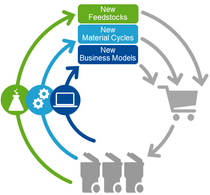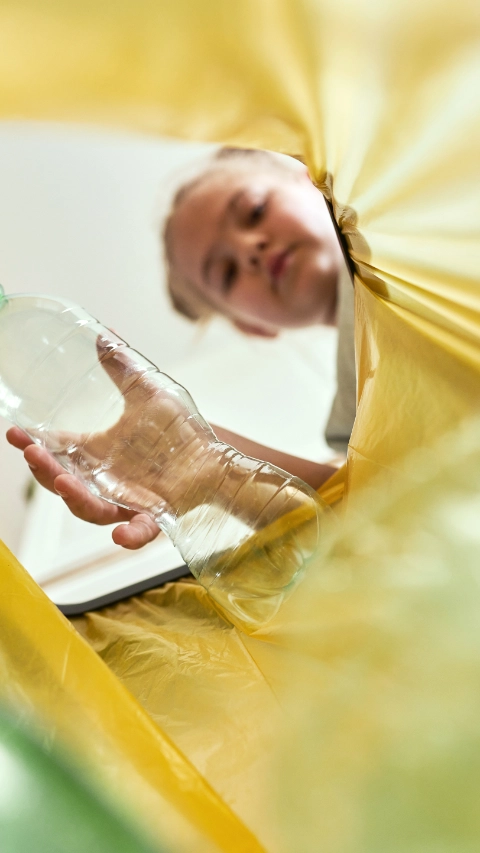Sustainability
Circular Economy
Another key contribution in our development, innovation and production work is thinking in terms of the circular economy: reuse, recycling, etc. Climate change, loss of biodiversity and environmental pollution pose significant threats to humanity's livelihoods. The current overexploitation of natural resources is one of the main causes of these problems.
We are increasingly aligning our actions with the principle of the circular economy. In our production, we are increasingly using recycled and waste-based raw materials, recycling operating materials and expanding our capacity to recover precious metals from used automotive and industrial catalysts. In addition, we are developing product-specific recycling technologies and are involved in cross-industry networks and initiatives to avoid plastic waste and strengthen the circular economy.
Our product portfolio and our research and development units are geared towards sustainable solutions. According to our updated portfolio evaluation method TripleS (Sustainable Solution Steering), around EUR 1 billion of our annual expenditure on research and development in 2023 contributed to potential sustainable future solutions.
Circular economy means decoupling growth from resource consumption. BASF is driving circular economy by making the most of the limited resources of our planet: We keep them in use for as long as possible, minimize waste and create value with renewable resources.
We contribute to close and extend the loops by developing and implementing circular solutions for the materials we source, further optimizing our operations and offering resource-efficient products and services which support our customers’ circularity journeys.
We aim to move toward a more Circular Economy by increasingly use recycled and renewable feedstocks, shaping new material cycles and creating new business models. BASF has therefore launched a new Circular Economy Program. By the year 2030, BASF aims to double its sales generated with Loop Solutions for the circular economy to €10 billion. They encompass the revenue generated from our circular products, which are based on renewable or recycled materials or support the recycling process (close the loop), as well as products that increase the durability or prolong the lifespan of materials (extend the loop). To achieve this, the company is concentrating on three action areas: circular feedstocks, new material cycles and new business models.

New business models
We develop new business models that meet the needs of our customers. Digital innovation will play a key role here, for example in developing track and trace solutions, or smart farming. We see this as an opportunity to enter new markets. We see potential in offering service models rather than just selling a chemical product.
Shaping new material cycles
By new material cycles, we mean products that close the loop by being based on renewable or recycled raw materials or by enabling recyclability and/or biodegradability.
Circular feedstocks
We will continue to increase the volume of renewable and recycled feedstocks from sustainable sources which we already use as drop-in solution. We expect that 250,000 metric tons of feedstock will come from recycled sources by 2025. The certified mass balance approach enables us to offer products with an allocated share of renewable or recycled feedstock. Customers can choose these products if they want to contribute to saving fossil resources and a lower carbon footprint. We also offer a bio-based portfolio, e.g. for personal care, nutrition or plastics. By offering a portfolio based on renewable and recycled feedstock, we contribute to reaching our target of €22bn sales with Accelerator products in 2025.











